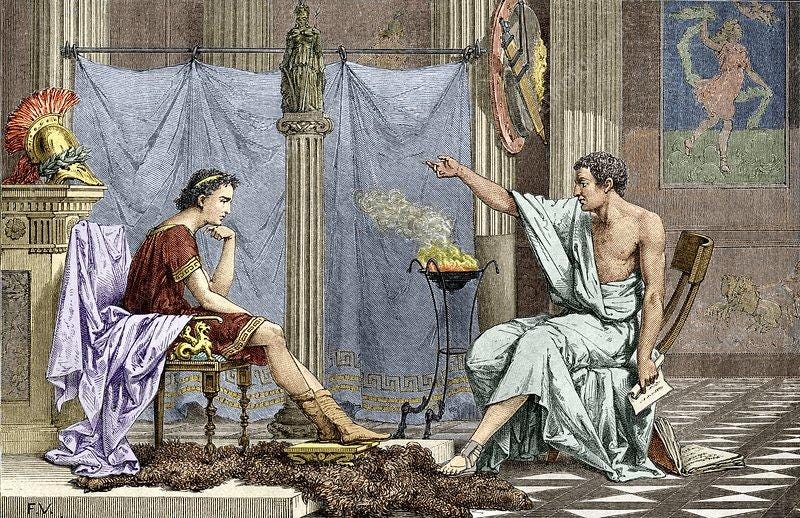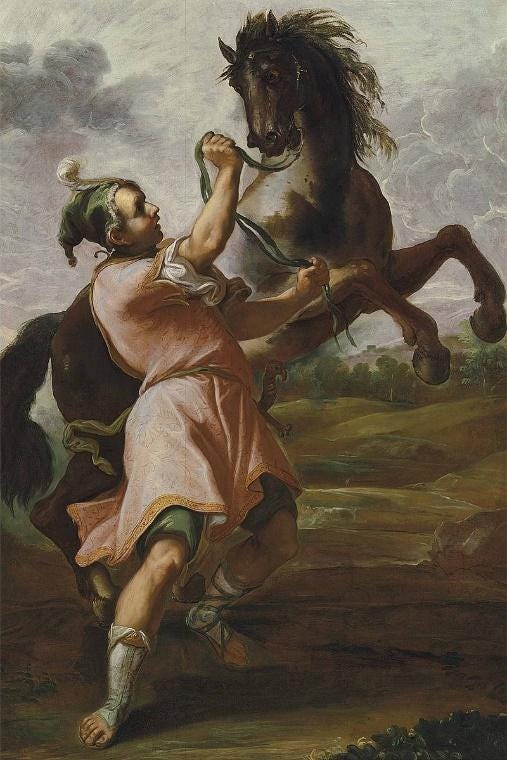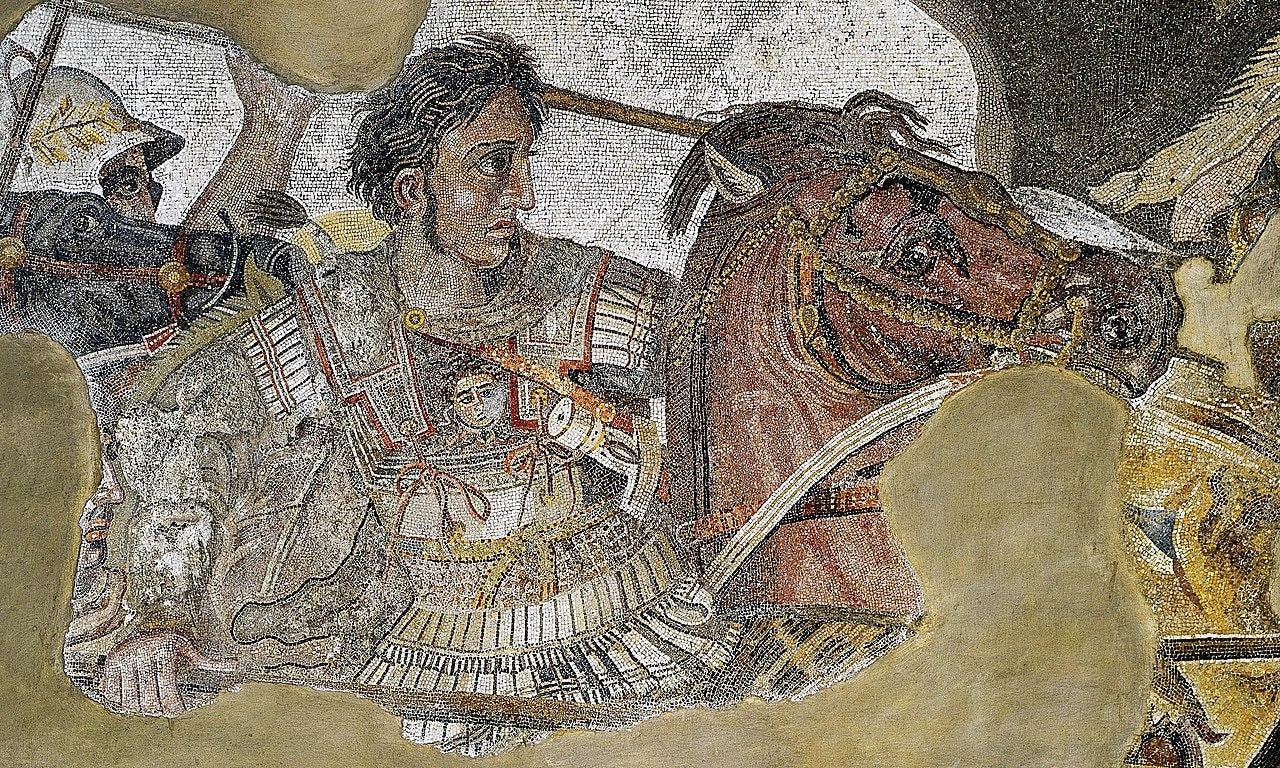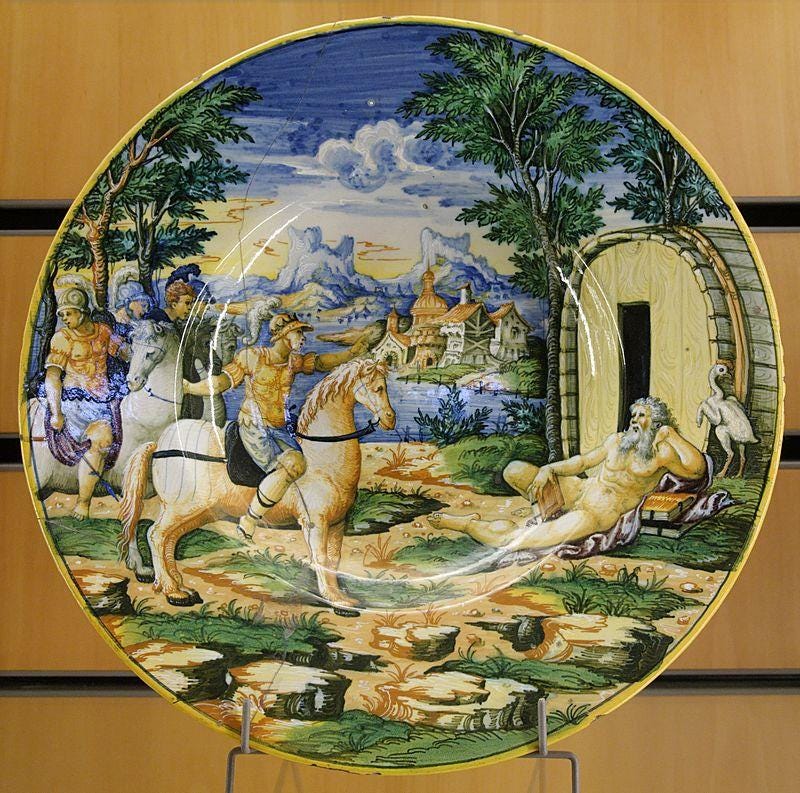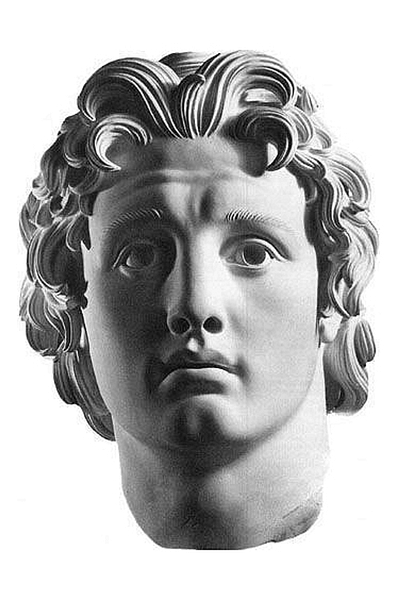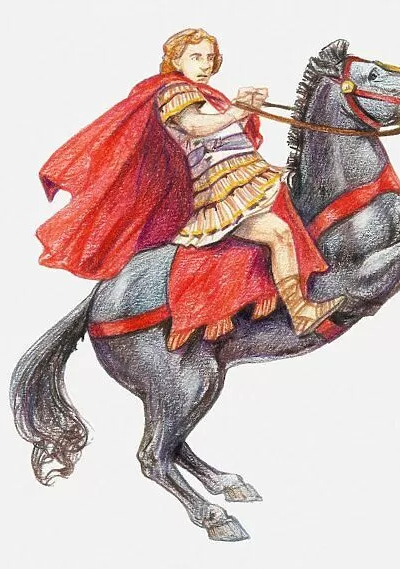Dear Classical Wisdom Kids,
There are some people in history who cast a long shadow… both literally and figuratively.
And no one would doubt that Alexander the Great falls squarely on that list… indeed, he may be number one to some. Just ask Diogenes the Dog!
So today’s we’ll review the life and legacy of Alexander the Great… including a new game with Shadows - something that probably Alexander, Diogenes and even Thales could get behind!
Classical Wisdom Kid Club Members, please enjoy the accompanying art activity (Alexander’s Fortune!) plus printables and a knot challenge, below.
All the best,
Anya Leonard
Founder and Director
Classical Wisdom and Classical Wisdom Kids
Alexander the Great
By Sean Kelly
Alexander the Great was one of the most important people who ever lived.
He was in charge of a huge empire, one of the biggest the world has ever seen! Even though he was a prince, and already had a kingdom, he always wanted more.
Alexander was from a place called Macedonia. His father was Philip II (Philip the Second), who was a great and important king. He wanted the best for his son growing up. So he arranged for his son to be tutored by Aristotle, one of the most important philosophers that ever lived.
Aristotle taught Alexander many lessons and the importance of wisdom.
Alexander also learned great stories about the city of Troy. Stories about Achilles were especially important to Alexander. He wanted to be like Achilles and leave behind a great legacy.
In fact, Alexander believed that he was descended from both Achilles and Hercules, two of the greatest Greek heroes of all.
Bucephalus
When Alexander was about twelve years old, a man offered Philip a horse. Philip wasn’t interested because it was very expensive, but Alexander was. The reason Philip wasn’t interested was because no one could tame the horse! Alexander and Philip ended up making a bet. Alexander bet that he would be able to tame the horse and so Philip agreed that he would buy the horse if Alexander could tame it.
Alexander was able to work out that the horse was scared of its shadow. He was able to direct him in a way so that he couldn’t see it anymore. The horse calmed down and was tamed.
Alexander named the horse Bucephalus, and he became one of his most important and best friends. They went on many adventures together and Alexander rode Bucephalus into battle lots of times!
Philip was so impressed by Alexander taming the wild Bucephalus, he said “Macedonia is too small for you!” Philip turned out to be very right. Even when he was still a young man, Alexander started winning important battles. He was famous for his cunning and clever strategies, as well as the strength of his armies.
In fact, Alexander never lost a single battle!
By the age of 30, he had created one of the largest empires in history, stretching from Greece to northwestern India. He founded more than twenty cities, with the most prominent being the city of Alexandria in Egypt. He named a lot of cities after himself, though one was named after his horse, Bucephalus! He spread Greek culture around his empire, but he also adopted a lot of local customs as he went. Many (though not all) saw him as a liberator.
The Gordian Knot
One famous story about Alexander is when he encountered the Gordian Knot. This was a knot that had been tied up in a very, VERY complicated way. There was a local legend which said that whoever was able to untie the knot would have a great destiny. Lots of people had tried to untie the knot, but no one had ever succeeded.
When Alexander came to the knot and heard the legend, he did something no one had ever thought to do before. He simply took his sword and cut the knot in half! He said, “The knot is untied.”
Alexander would think about problems in ways other people wouldn’t!
Diogenes
Alexander also met Diogenes of Sinope (also known as Diogenes the Dog). He was a famous philosopher who lived in a barrel and taught people how to question the world around them. Alexander was very impressed by his wisdom and the stories he had heard about him. Alexander always respected philosophers.
When Alexander met Diogenes, Alexander offered him anything he wanted in the world. Diogenes simply asked him to stay out of his sunlight! Alexander was so impressed by him, he said “If I were not Alexander, I would like to be Diogenes!”
Alexander changed the world, and his impact was felt for centuries afterwards. Many aspects of the ancient world were shaped by him. Alexander wanted to leave a great legacy, and that’s exactly what he did.
Let Little Readers Read!
Download the PDF with word bank here:
Alexander’s Fortune
(Art activity by Elizabeth Smith)
Alexander loved philosophy and was always excited to meet his philosophy heroes. Once Alexander had the opportunity to meet Diogenes of Sinope! If you haven’t met Diogenes, please let us introduce you… You can read all about this unique Cynic philosopher here.
One day, Diogenes was lounging at his barrel, basking in the sunlight, when Alexander approached. Alexander, excited to meet his hero, asked if Diogenes wanted anything from his fortune. Thinking about all the things Alexander could do for him, he made his request, “Stand aside. You're blocking my sun.”
This was what Alexander could to do for him! Alexander thought Diogenes’ answer was wonderful and said, “If I were not Alexander, I would be Diogenes.”
Maybe, Alexander should have offered Diogenes some shadow art… instead of his shadow blocking the sun?
Now to make a fortune’s worth of shadow art…fit for a Cynic!
Here are a few ideas:
Have someone trace your shadow, using chalk, add silly faces to your shadow. Even though Diogenes required very little… clothing, jewelry, and accessories may be added to your shadow figure.
Using paper draw, or paint, an object’s shadow. Move the light source to change the position of the object’s shadow. Use a new color for each new shadow cast.
Create shadow puppets! Draw, and cut out, your shadow play’s characters. Glue, or tape, each character onto a stick. Use a light from behind the puppet to cast a shadow silhouette onto a wall or screen.
Alexander the Great was not the only one who was “great” at understanding shadows. The philosopher Thales of Miletus was great at measuring with shadows!
Check out our Thales of Miletus measuring activity for more fun with shadows:
Be aMAZED: Help Alexander and his horse Bucephalus find India!
Download the Maze here:
It’s KNOT a Myth
Sources from antiquity agree that Alexander the Great was confronted with the challenge of the knot, but there are different versions of how he solved the knot. Some say he pulled a lynchpin and was able to untie it that way... either way, the complicated knot existed!
See if you can make your own Gordian Knot! Take two pieces of string (or even one) and see how hard you can ‘tie it’.Then see if someone can unite it.
You can also practice common knots... Knots were really important in the ancient world, and are still used today in sailing, rock climbing and other fun activities!
Check out these 5 easy knots:





